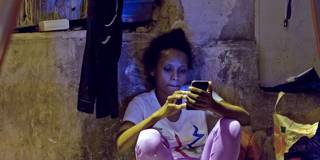The Right to Be Seen
The ability to exercise many of our most basic rights and privileges – voting, driving, owning property, and traveling – requires standardized information to determine who is eligible for what. But, in the age of digital data, there is hope for the billion people worldwide who lack such information.

WASHINGTON, DC – While much of the developed world is properly worried about myriad privacy outrages at the hands of Big Tech and demanding – and securing – for individuals a “right to be forgotten,” many around the world are posing a very different question: What about the right to be seen?